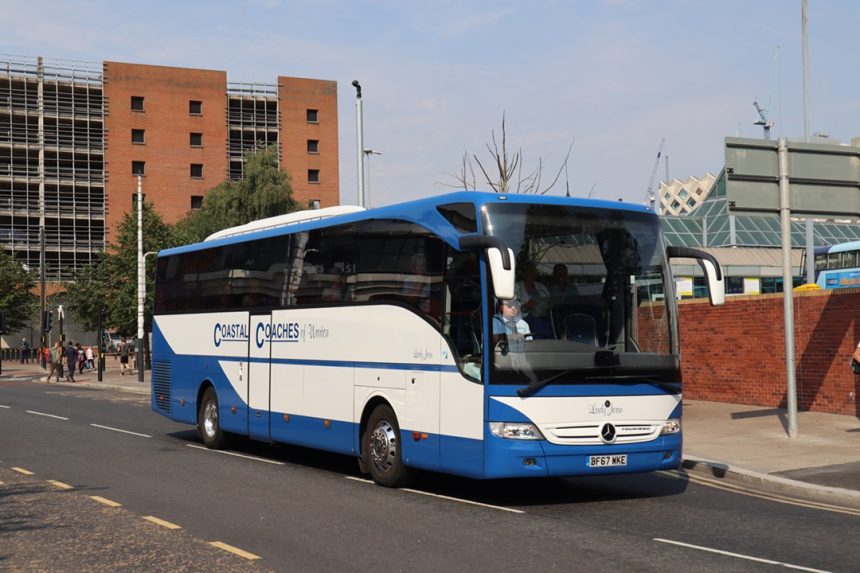National Coach Week 2025 opens on 12 May. With it will come an opportunity to publicly celebrate and promote the sector. Central to those efforts as chosen by organiser RHA is the contribution that coach makes to society – well-known among those that deliver services of course, but not always so beyond.
Local Transport Minister Simon Lightwood has already visited Star Coaches of Batley to underline government support for the sector and for National Coach Week. That will quickly be followed by a roundtable with him and coach leaders to discuss the industry’s needs.
It does not take much imagination to predict that certainty over the move away from diesel in new vehicles and PSVAR will be among those. The minister has again noted how proposed changes to licensing for the youngest PCV drivers are progressing through the consultation stage – amendments first called for by coach operators over two-and-a-half years ago.
One prominent sector member acknowledges the minimal likelihood of much (or indeed, any) central government money coming the coach industry’s way to help it negotiate the challenges it faces already or those that will come later. Mr Lightwood has already given a strong hint that the move to zero-emission will be entirely commercial, at least in England.
He previously told routeone how he understands that clarity is key for coach and bus, but the coach industry member passing comment on their sector’s future direction is adamant that long-term policy certainty must be the overarching ask of ministers.
When planning investments, it is imperative; vehicles do not wear out and find their way to the bin within a couple of years. They are a multi-decade commitment, and when major intervention is needed within that lifespan, the implications are significant. See: PSVAR.
Nevertheless, the motivation for National Coach Week is not to complain, but to celebrate. Aside from support lent by elected representatives, it is a non-political event, with each of the three nationwide trade bodies serving the sector supporting its aims.
Passenger groups will be onboard with the initiative. The coach industry is nothing if not skilled at engaging with its communities. That was earlier articulated in northern England, where a regular home-to-school driver, off work sick and in hospital, received numerous cards from the children they would usually convey.
Because of that, it could be argued that in some cases the industry may be preaching to the converted in certain customer groups, but they also serve as key advocates. Necessary is spreading that support to other demographics and building political understanding.
The latter was a difficult ask in spring 2024 with a lobbying event in Westminster as part of last year’s National Coach Week. It drew moderate buy-in from MPs sitting in the previous parliament, much to the annoyance of some industry representatives on hand.
Maintaining pressure is thus vital. If it ever were to ebb away, momentum gained since 2020 will do similar. Engagement with politicians is essential; only then will coach be seen as what it is: A critical part of the UK’s transport system, and equally important to so many other parts of the economy besides.



























